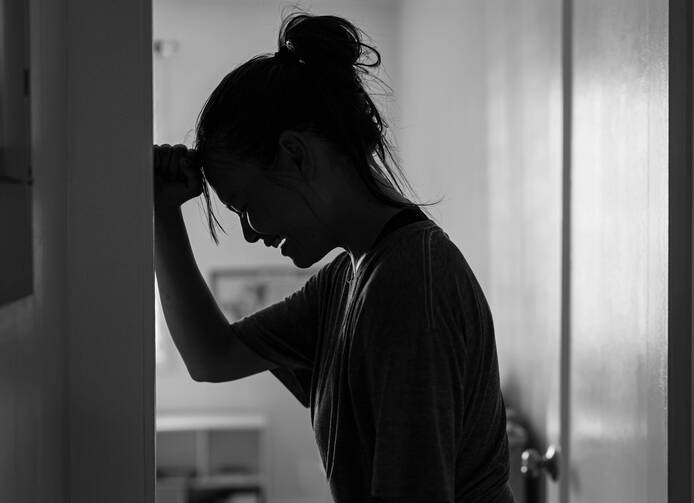A Reflection for Wednesday of the Thirteenth Week in Ordinary Time
What is the matter, Hagar?
Don't be afraid; God has heard the boy's cry in this plight of his. (Gn 21:17)
Among the many women in the Bible who appear briefly but have a lasting impact, Hagar is someone we now understand much better thanks to the work of modern women scholars. The Rev. Dr. Renita Weems, who is the first Black woman to earn a PhD in Old Testament Studies, has written extensively about Hagar. And Hagar’s story not only parallels those of Black American women born into slavery, but helps us to understand how social stratification still impacts women today.
Many of us who don’t have children can feel some empathy for Sarah, whose barrenness has made her bitter and envious of the fertile slave Hagar. But Sarah is also wealthy and powerful, and she owns Hagar’s body. It is the friendship between their sons Isaac and Ishmael that exacerbates Sarah’s jealousy to the point that she banishes Hagar and Ishmael to likely die in the desert. In her essay A Mistress, A Maid, and No Mercy, Reems writes:
Like our own situation, the story of the Egyptian Hagar and the Hebrew Sarai encompasses more than ethnic prejudice. There is a story of ethnic prejudice by economic and sexual exploitation. There is a story of conflict, women betraying women, mothers conspiring against mothers. Theirs is a story of social rivalry.
Sarah and Hagar’s story is also about power. A few years ago, a local theater company here in the Bay Area put on a play about the relationship between Thomas Jefferson and his slave Sally Hemmings. The play was accused of “romanticizing” what many historians argue was inherently a relationship of exploitation. While previous generations claimed Jefferson was not the father of Hemmings’ children, DNA investigations have since revealed that many of Jefferson’s living descendents are related to both him and Hemmings. At least one of those descendents, a newscaster named Shannon LaNier, looks so much like his presidential ancestor that an artist’s portrait of them side by side is startling.
Hagar and Hemmings were both human beings, with ideas of their own. Even in slavery, their souls were their own. But their choices were limited by their race and gender along with their social status. Reems reminds us that Sarah’s hatred of Hagar is a depiction of “one woman’s exploitation of another woman.”
“Injustice in our lands,” Reems writes, “requires the perpetual alienation of women from one another and upon relentless hostility between women.” Social structures cast women into competition, and women internalize this and take it out on one another. It is the cry of Hagar and her son Ishmael, a child born from a relationship based on the exploitation of human beings, that ultimately summons God to their aid. The child born to a slave will be a “great nation,” but Hagar first has to feel her son’s pain and fear for his life due to Sarah’s jealousy.
How often do women undermine one another professionally, put other women down or let jealousy of another woman lead us to treat her poorly? That is us enacting the same social order that leads to Hagar’s exile, and it perpetuates the same social stratification that led history to try and erase Sally Hemmings’ existence. The fact that we are still playing out these roles should be the very thing that calls us to change. God is always on the side of the exploited, the damaged and the exiled. God is on Hagar’s side.
Correction: A previous version of this reflection incorrectly referred to Hagar’s son as Isaiah.








